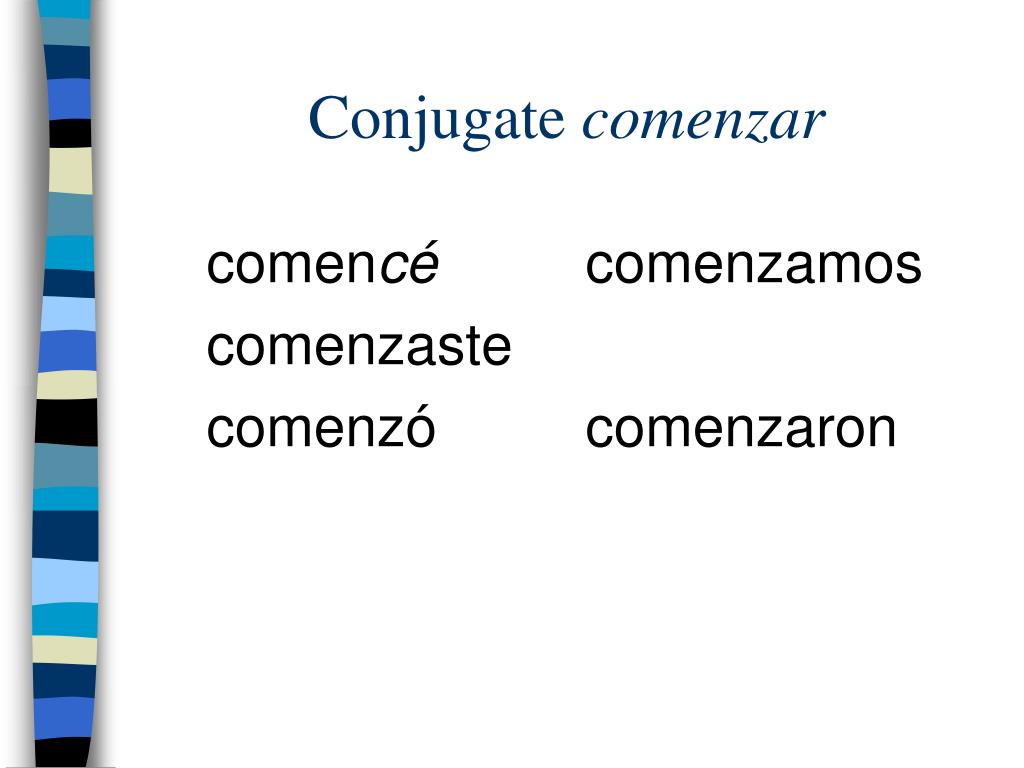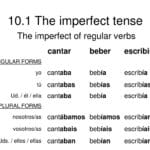Learning Spanish? Mastering the preterite tense is key, and pagar (to pay) is a verb you’ll use constantly. This guide provides everything you need to use the pagar preterite correctly, from conjugations and examples to common pitfalls and pronunciation tips.
Pagar in the Past: Understanding the Preterite
The preterite tense describes completed actions in the past. Think of it as a snapshot of a finished moment. You’d use the preterite to talk about that specific time you paid the bill, bought a souvenir, or settled a debt. This differs from the imperfect tense, which describes ongoing or habitual past actions. For example, “I used to pay my bills every Friday” would use the imperfect (pagaba), while “I paid the bill yesterday” uses the preterite (pagué).
Conjugating Pagar: A Surprisingly Simple Verb
Pagar is a regular -AR verb in the preterite, making it relatively easy to conjugate. There’s just one slight irregularity in the yo form. Here’s the full conjugation:
| Pronoun | Conjugation | Translation | Example |
|---|---|---|---|
| Yo | pagué | I paid | Yo pagué la cuenta. (I paid the bill.) |
| Tú | pagaste | You paid | Tú pagaste el alquiler. (You paid the rent.) |
| Él/Ella/Usted | pagó | He/She/You (formal) paid | Él/Ella/Usted pagó el taxi. (He/She/You paid for the taxi.) |
| Nosotros | pagamos | We paid | Nosotros pagamos la cena. (We paid for dinner.) |
| Vosotros | pagasteis | You (pl./Spain) paid | Vosotros pagasteis las entradas. (You all paid for the tickets – Spain) |
| Ellos/Ellas/Ustedes | pagaron | They/You (pl.) paid | Ellos/Ellas/Ustedes pagaron el hotel. (They/You all paid for the hotel.) |
Pronunciation Power: Nailing the Pagar Preterite
While grammatical accuracy is essential, correct pronunciation adds fluency. In pagué and pagó, the “u” is pronounced like the “oo” in “moon,” not like the “u” in “rule.” This subtle difference can greatly impact how natural your Spanish sounds.
Avoiding Common Traps: Preterite vs. Imperfect
Confusing the preterite and imperfect is a common mistake. Remember, preterite is for completed actions, imperfect for ongoing or habitual ones. For ongoing payments, you’d use the present progressive (e.g., Estoy pagando la hipoteca – I am paying the mortgage).
Expanding Your Vocabulary: Payment Methods and Beyond
To enrich your conversations, try using pagar with different payment methods:
- en efectivo (in cash)
- con tarjeta (with a card)
- por internet (online)
You can also explore related verbs like abonar (to pay in installments) and liquidar (to settle a debt). Delve into the intricacies of other Spanish verbs like the llamarse conjugation to further enhance your fluency.
What is the Preterite of Peinarse?
Peinarse (to comb one’s hair) is a reflexive verb, meaning the action is performed on oneself. Like other reflexive verbs, it uses reflexive pronouns (me, te, se, nos, os, se).
The Reflexive Idea
Reflexive pronouns reflect the action back to the subject. When you peinarse, you comb your own hair.
Peinarse in the Past
The preterite of peinarse captures a specific instance of combing one’s hair in the past.
Conjugating Peinarse in the Preterite
The reflexive pronoun comes before the conjugated verb:
| Pronoun | Conjugation | Example |
|---|---|---|
| Yo | me peiné | Me peiné antes de salir. (I combed my hair before leaving.) |
| Tú | te peinaste | ¿Te peinaste esta mañana? (Did you comb your hair this morning?) |
| Él/Ella/Usted | se peinó | Se peinó rápidamente. (He/She/You combed their hair quickly.) |
| Nosotros/as | nos peinamos | Nos peinamos antes del evento. (We combed our hair before the event.) |
| Vosotros/as | os peinasteis | ¿Os peinasteis para la fiesta? (Did you all comb your hair for the party? – Spain) |
| Ellos/Ellas/Ustedes | se peinaron | Se peinaron con cuidado. (They/You all combed their hair carefully.) |
How Do I Conjugate in the Preterite?
Most -AR verbs follow a predictable pattern in the preterite. Pagar is mostly regular, with one exception.
Conjugating Pagar: A Step-by-Step Guide
- Start with the stem: pag-
- Add preterite endings:
| Pronoun | Conjugation | Note |
|---|---|---|
| Yo | pagué | Irregular – note the accent and “u.” |
| Tú | pagaste | Regular |
| Él/Ella/Usted | pagó | Regular |
| Nosotros/as | pagamos | Regular |
| Vosotros/as | pagasteis | Regular |
| Ellos/Ellas/Ustedes | pagaron | Regular |
How Do You Use Pagar in a Sentence?
Pagar is versatile. Here’s how to use it in different contexts:
Paying in the Past (Preterite)
See the conjugation table above. The “yo pagué” form is essential to master.
Beyond the Basics: Other Tenses
- Present: Pago el alquiler cada mes. (I pay rent every month.)
- Future: Pagaré la deuda mañana. (I will pay the debt tomorrow.)
- Subjunctive: Espero que pagues pronto. (I hope you pay soon.)
Progressive Tenses
- Estoy pagando la hipoteca. (I am paying the mortgage.)
Synonyms for Pagar
- Abonar (to pay off in installments)
- Liquidar (to settle a debt)
By mastering pagar and the preterite tense, you’ll significantly enhance your ability to communicate effectively in Spanish. Remember, consistent practice is key to fluency!
















